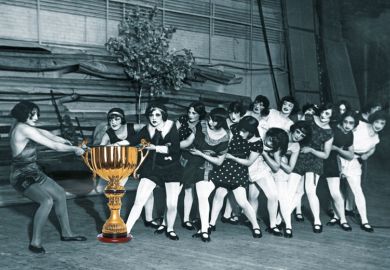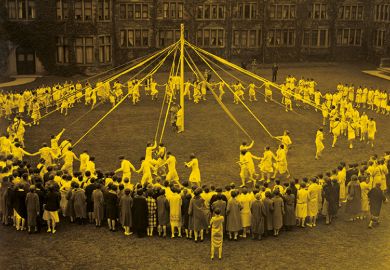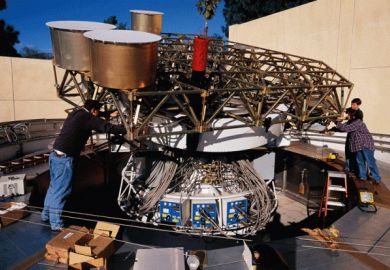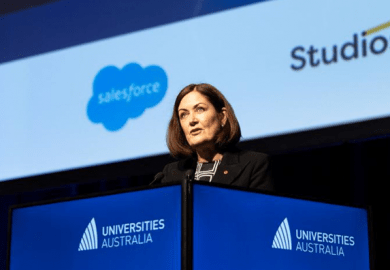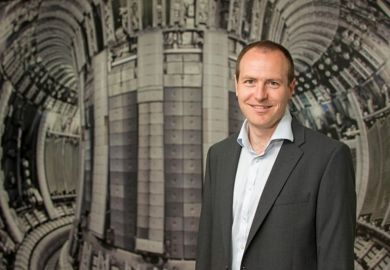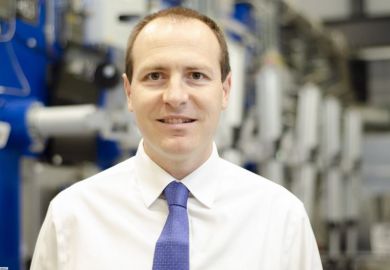Academia needs to do more to recognise teamwork in research, a conference has heard, amid concerns that the pandemic may have made some collaborators less visible.
Matthew Flinders, professor of politics at the University of Sheffield, said that the arts, humanities and social sciences, in particular, “have been a little bit behind the curve in keeping up with the shifting landscape, which is heading towards a team-based approach” to scholarship.
However, speaking at the Wellcome Trust’s Reimagine Research Culture Festival, Professor Flinders said that those subject areas “have a lot to offer in the understanding and doing of team science, because it’s those disciplines that study human behaviour, culture, interaction”.
“What we do know is that sometimes where team science is done, it’s not always done in the most inclusive, fair or open manner. So maybe, although team science isn’t common within the social sciences, arts and humanities, it’s those disciplines that have an as-yet-unrealised potential to help shape how we want to redefine, reinvigorate, reimagine team science.”
Jeroen Geurts, president of the Netherlands Organisation for Health Research and Development and executive board member of the Netherlands Organisation for Scientific Research, said that as of last year, teams of scientists were eligible for the annual Spinoza Prize, known as the “Dutch Nobel prize”, but the criteria for teams are different.
“If you go for a team award, then you have to have a demonstrably greater effect than individual achievements and that, I think, is an issue, apart from the fact it took us 20 years or more to move from individualised awards to more team-guided awards. It has to be defended [if] you want to go for a team award and that is something that should be much more normal,” he said.
Philippa Saunders, chair of reproductive steroids at the University of Edinburgh and registrar at the Academy of Medical Sciences, which published a 2016 report on team science, said she was “concerned” that the Covid crisis had “made some people less visible in their teams”.
“People are falling behind in terms of being able to network and I have concerns that we need to revisit this issue [of rewarding teamwork] and keep up the pressure,” she said.
Dawn Edge, professor of mental health and inclusivity at the University of Manchester, said that the conversation around teamwork had to move beyond simply making sure all members of teams got credit for their work.
Responding to a question from a conference delegate, who said they did not “feel that I could be a PI [principal investigator] any more in clinical research” as they had “significant disabilities that were getting worse”, Professor Edge said that it should be possible to be a “co-PI”.
“All the skills, knowledge and expertise that person has shouldn’t be lost because they have a disability of some kind...We need to be a bit more creative in the way we think about truly enabling people to participate,” she said.
There have long been calls for UK research councils to allow more than one PI to be listed on funding applications.
Heidi Johansen-Berg, director of the Oxford Centre for Functional MRI of the Brain at the University of Oxford, said that the sector needed to move away from thinking that “to be a proper scientist, you need to think about your science day and night”.
“People can make really valuable contributions in compartmentalised bits of their time and life. It’s more to do with the quality of their contribution than the number of hours they can devote to it,” she said.
Register to continue
Why register?
- Registration is free and only takes a moment
- Once registered, you can read 3 articles a month
- Sign up for our newsletter
Subscribe
Or subscribe for unlimited access to:
- Unlimited access to news, views, insights & reviews
- Digital editions
- Digital access to THE’s university and college rankings analysis
Already registered or a current subscriber? Login

